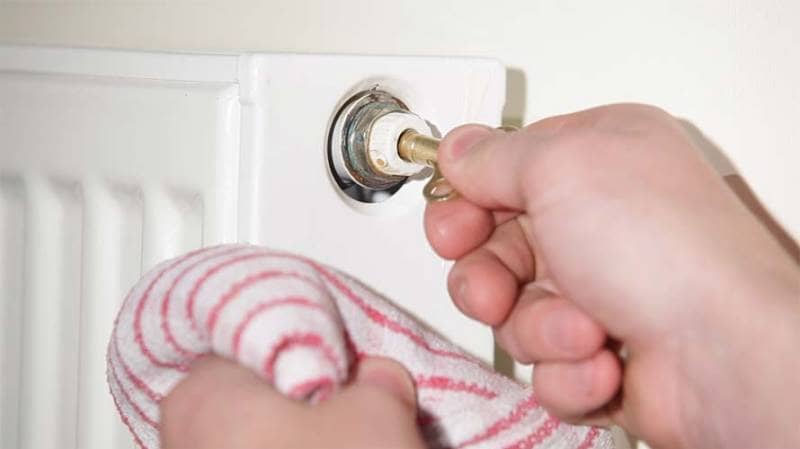A boiler is a popular type of home heating system that creates central heat using water, and many boilers work by sending the heat to radiators throughout the home. The boiler must maintain an optimal pressure level, or balance between water and air, to function properly and efficiently. When pressure levels get too low, your heater may completely cut off. On the other hand, high pressure may cause the system to overload and fail. Continue reading to learn more about high boiler pressure and how you can reduce it by bleeding your radiators.
What Causes High Boiler Pressure?
While standard pressure levels will depend on the exact type of system, most boilers perform between 18 and 20 PSI. The boiler's pressure gauge will show this measurement on the control panel. Refer to your boiler's manual for more details.
Boiler pressure will naturally rise when your heating or hot water is in use, but it should not rise above 2.5 bar. If you notice that it continues to stay between 2.5 and 4 bar, you will likely need to release pressure from the boiler.
One of the most common causes of high boiler pressure is an excess amount of water in the system. This may simply be from a valve left open or may be due to something more complicated like a faulty part that would need further repairs. If you can't figure out what's causing high pressure levels, it's best to have your local contractor diagnose the issue.
Why Do I Need to Bleed My Radiators?
Bleeding the radiators will allow air to escape from the system, thereby lowering the pressure, increasing water circulation, and allowing the system to work more effectively. Aside from seeing a high level on the pressure gauge, you may notice other signs that you need to bleed your radiators; for example, you may hear noises when the radiators warm up or you might feel cold patches on them even when the heat is on.
It's important to note that each radiator in your home is independent of the others, meaning that you may not need to bleed all of them if you find cold spots on one.
How to Lower Boiler Pressure
Your local HVAC professionals can come out to look at your boiler and bleed your radiators.
 If you are opting to do it yourself, you can follow the easy steps listed below. But before you start, keep these tips in mind: if you have more than one floor in your home, start with the radiators on the lower floor then work your way to the top. Additionally, start with the radiators that are furthest from the boiler to avoid letting air back into the system as you make your way along the water lines.
If you are opting to do it yourself, you can follow the easy steps listed below. But before you start, keep these tips in mind: if you have more than one floor in your home, start with the radiators on the lower floor then work your way to the top. Additionally, start with the radiators that are furthest from the boiler to avoid letting air back into the system as you make your way along the water lines.
- Make sure your heating system is turned off and wait for the radiators to cool down so that you don't burn yourself.
- Grab a cloth to hold under the radiator valve to catch any water that may leak out.
- Once the radiators are completely cooled, use a screwdriver or radiator key to open the bleed valve (usually located along the top of the radiator).
- Turn the valve counter-clockwise to let out any trapped air. Anywhere from a quarter turn or a half turn will usually suffice. You should start to hear a hissing sound as the air escapes from the system.
- Once the hissing noise stops and any water leaks out, turn the key clockwise to close the valve and seal the system shut.
- Repeat the process on any other radiators that need to be bled. Once complete, check the boiler's pressure gauge to make sure there is still sufficient pressure in the system for it to run properly.
If you find yourself having to bleed the radiators several times a year, you may have an issue with your heating system. In that case, schedule an appointment with an HVAC technician so that they can get to the root of the problem and fix it before it gets worse.
If you live in the Delaware Valley/Greater Philadelphia area and would like to find comfort within your home, visit our website or give us a call at 215 - 245 - 3200 to learn more.




